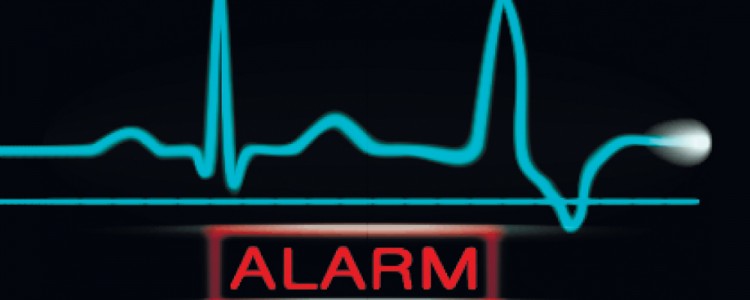Ever noticed the different types of alarms in a hospital? Nurses and clinicians are exposed to thousands of alerts and alarms every day from a variety of systems. Over time, it is not surprising they get immune to the lights and sounds, causing them to easily ignore alarms instead of responding to their urgent call for action. Seem impossible? This seemingly impossibility has a name, it is called alarm fatigue. Alarm fatigue is a term that describes the mindset once nuisance alarms start getting ignored. Nuisance alarms are not to be confused with false alarms.

False alarms occur when a system cannot determine what caused the alarm and is essentially a result of a faulty system. Though these may contribute to alarm fatigue, they are easily fixed by purchasing a quality system, keeping it well maintained and up to date.
Nuisance alarms are entirely different than false alarms and they are the cornerstone of alarm fatigue. Nuisance alarms occur when the system does exactly as it was programmed to do, but there is no crisis occurring. Have you ever been in the hospital and pulled off something attached to your body that was monitoring some important information? The system will probably start to alarm thinking you might be in trouble. This is a nuisance alarm, although in reality, you are just fine. But the system doesn’t know this.
When these nuisance alarms go unanswered, the systems emitting these alarms undermine the staff’s confidence in the system and this is when alarm fatigue gets dangerous.- Downgrades the effectiveness of any alarm system
- Raises concern for determining when a patient is in real trouble versus a patient who is not
- Can affect response time and influence patient safety
The legitimacy of the alarm fatigue mindset is so real that military units use this technique to covertly gain entry by using repeated alarms until the target stops responding.
IMS has been designing, installing, and supporting Patient Security Systems in hospitals for over twenty years. We believe that system design is key to helping minimize alarm fatigue.- Consulting with the hospital to find out how they will use the system
- Understand clinical workflows
- Look at patient movement and where exits are being protected
- Talk about areas of possible nuisance ahead of time and how to prevent them, especially if it’s a construction project
But this is only the beginning.
We support the system 365/24/7 and have a long history of preventing alarm fatigue through awareness training, support agreements and system maintenance. We work hard to keep the integrity of the Patient Security System above reproach. IMS's history of design, install and support is why we still have our first Hugs customer and why IMS is the largest Hugs distributor in the United States. Call us today to talk about patient security.


